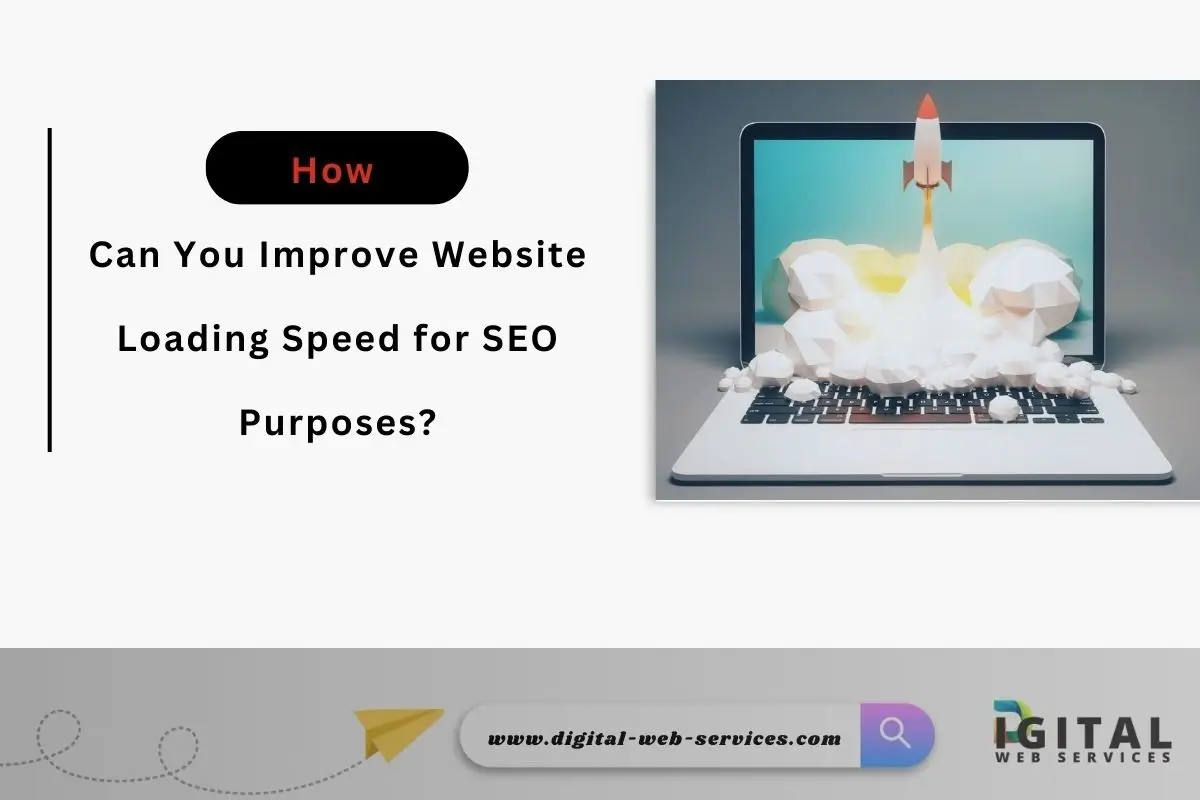
Improving website loading speed is crucial for better website SEO performance. Website speed has a direct impact on search engine rankings, user experience, and overall site performance. Search engines like Google consider page load time as a ranking factor, and slow websites can negatively affect your position in search results. In this article, we’ll explore how to improve website loading speed for SEO, covering essential techniques such as optimizing images, reducing server response time, and improving core web vitals.
Why Website Speed Is Important for SEO
SEO and page load time are closely related. Google uses page load time as one of the ranking factors in its search algorithms. Websites that load faster provide a better user experience, which can reduce bounce rates and increase dwell time—two important signals for search engines.
Moreover, a slow website can frustrate visitors, leading to lost traffic and conversions. As user expectations grow, improving site speed for better search rankings is no longer optional; it’s a necessity.
Best Practices for Faster Website Loading
- Optimize Images for Faster Website Load Time
Images are one of the biggest culprits of slow website loading. To improve website performance for SEO, ensure your images are properly optimized. Use modern image formats like WebP, which offers better compression without sacrificing quality. Additionally, make sure to resize images to fit the display size of your website.- Tools to compress images: TinyPNG, ImageOptim, and WebP converters can help compress and optimize images for faster load times.
- Reduce Server Response Time for SEO
A high server response time can significantly affect your site speed and SEO performance. The faster your server responds, the quicker your pages will load. Ensure that your hosting provider offers fast servers, and consider using a content delivery network (CDN) to distribute your site’s content across various locations.- Tips to reduce server response time: Use faster hosting, enable caching, and optimize your database.
- Minimize HTTP Requests for Faster Loading
Every time a browser requests a file (e.g., an image, script, or stylesheet), it makes an HTTP request. More requests equal longer load times. To improve page speed optimization for SEO, reduce the number of HTTP requests by combining files (like CSS and JavaScript) and removing unnecessary ones.- Tools to help with this: Google PageSpeed Insights, GTmetrix, and WebPageTest are excellent tools to measure HTTP requests and suggest improvements.
- Leverage Browser Caching
By setting an expiration date or maximum age in HTTP headers, you allow browsers to cache static resources, which can reduce load time for repeat visitors. This is one of the easiest ways to improve website speed for SEO.- What to cache: Images, CSS, JavaScript, and even fonts.
- Use a Content Delivery Network (CDN)
A CDN helps distribute your website’s static resources across multiple servers worldwide, reducing the distance between the server and the user. This speeds up the delivery of content and is particularly effective for global websites. - Minify and Compress CSS, JavaScript, and HTML
Reducing the size of your CSS, JavaScript, and HTML files can significantly improve page load time. Tools like UglifyJS for JavaScript and CSSNano for CSS can minify and compress your files. Similarly, enabling Gzip compression on your web server can reduce file sizes by up to 70%. - Improve Core Web Vitals for SEO
Google’s Core Web Vitals focus on three aspects of user experience: loading, interactivity, and visual stability. Improving these metrics is crucial for SEO website performance improvement. Ensure that your pages load quickly, are interactive, and don’t shift unexpectedly.- Core Web Vitals:
- Largest Contentful Paint (LCP): Time it takes to load the largest visible element.
- First Input Delay (FID): Time it takes for the website to respond to a user’s first interaction.
- Cumulative Layout Shift (CLS): Measures how much a page’s layout shifts during loading.
To improve Core Web Vitals, focus on reducing render-blocking resources, using lazy loading, and optimizing fonts.
- Core Web Vitals:
- Optimize Mobile Performance
With mobile-first indexing becoming the standard, it’s important to ensure that your website is optimized for mobile devices. Mobile users are especially sensitive to slow load times, and improving site speed for better search rankings on mobile devices can directly affect your SEO.
Tools to Test Website Speed for SEO
To ensure your website is optimized for SEO and fast loading, use these tools to test your site’s performance:
- Google PageSpeed Insights: Provides suggestions for improving website speed and performance.
- GTmetrix: Offers a detailed breakdown of your site’s speed and optimization opportunities.
- Pingdom: Provides performance monitoring with an easy-to-understand report on your website’s speed.
- WebPageTest: Offers advanced options for testing website performance from different locations and browsers.
Conclusion
In summary, improving website loading speed for SEO is essential to boost search engine rankings and provide a better user experience. By following best practices such as optimizing images, reducing server response time, leveraging CDNs, and improving Core Web Vitals, you can ensure your website loads faster and ranks higher in search results.
Remember, website speed is not a one-time fix but an ongoing process. Regularly test your site’s speed, address bottlenecks, and keep optimizing to stay ahead of the competition.
By implementing these strategies, you can enhance your website performance for SEO, ensuring that both users and search engines can navigate your site seamlessly and quickly.
If you found this guide helpful, start implementing these website speed optimization techniques today! Need help with speeding up your site? Contact us for a comprehensive website audit and SEO performance analysis.
Digital Web Services (DWS) is a leading IT company specializing in Software Development, Web Application Development, Website Designing, and Digital Marketing. Here are providing all kinds of services and solutions for the digital transformation of any business and website.










